Supreme Court Term 2025-2026
We’re breaking down the cases we've asked the court to consider this term.
Latest Case Updates
Ongoing
Updated November 7, 2025
Ongoing
Updated November 5, 2025
Ongoing
Updated November 4, 2025
Ongoing
Updated October 21, 2025
Featured
U.S. Supreme Court
Nov 2025

Voting Rights
Racial Justice
Allen v. Milligan
Whether Alabama’s congressional districts violate Section 2 of the Voting Rights Act because they discriminate against Black voters. We succeeded in winning a new map for 2024 elections which, for the first time, has two congressional district that provide Black voters a fair opportunity to elect candidates of their choosing despite multiple attempts by Alabama to stop us at the Supreme Court. Despite this win, Alabama is still defending its discriminatory map, and a trial was held in February 2025 to determine the map for the rest of the decade.
In May 2025, a federal court ruled that Alabama's 2023 congressional map both violates Section 2 of the Voting Rights Act and was enacted by the Alabama Legislature with racially discriminatory intent.
Washington, D.C.
Oct 2025

Voting Rights
League of Women Voters Education Fund v. Trump
On March 25, 2025, in a sweeping and unprecedented Executive Order, President Trump attempted to usurp the power to regulate federal elections from Congress and the States. Among other things, the Executive Order directs the Election Assistance Commission‚ÄĒan agency that Congress specifically established to be bipartisan and independent‚ÄĒto require voters to show a passport or other citizenship documentation in order to register to vote in federal elections. If implemented, the Executive Order would threaten the ability of millions of eligible Americans to register and vote and upend the administration of federal elections.
On behalf of leading voter registration organizations and advocacy organizations, the ļž–” ”∆Ķ and co-counsel filed a lawsuit to block the Executive Order as an unconstitutional power grab.
U.S. Supreme Court
Oct 2025
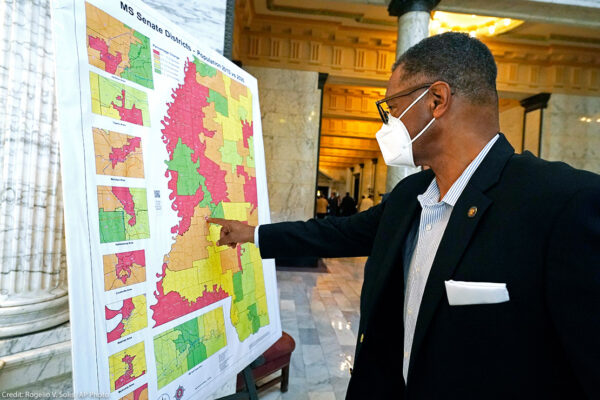
Voting Rights
State Board of Election Commissioners v. Mississippi State Conference of the NAACP
Mississippi has a growing Black population, which is already the largest Black population percentage of any state in the country. Yet. Black Mississippians continue to be significantly under-represented in the state legislature, as Mississippi’s latest districting maps fail to reflect the reality of the state’s changing demographics. During the 2022 redistricting process, the Mississippi legislature refused to create any new districts where Black voters have a chance to elect their preferred representative. The current district lines therefore dilute the voting power of Black Mississippians and continue to deprive them of political representation that is responsive to their needs and concerns, including severe disparities in education and healthcare.
U.S. Supreme Court
Oct 2025

Voting Rights
Louisiana v. Callais (Callais v. Landry)
Whether the congressional map Louisiana adopted to cure a Voting Rights Act violation in Robinson v. Ardoin is itself unlawful as a gerrymander.
Missouri
Sep 2025
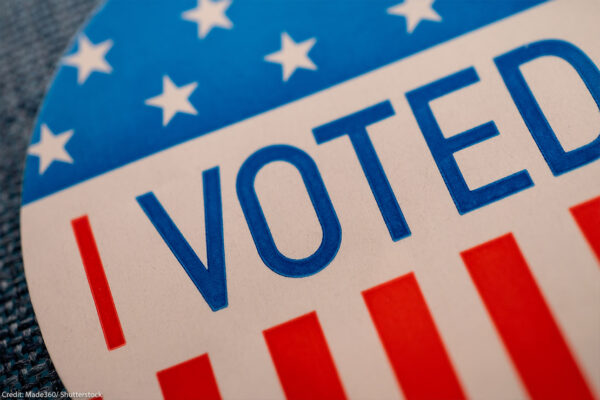
Voting Rights
Wise v. Missouri
In unprecedented fashion, the State of Missouri has redrawn the district lines used for electing members of Congress for a second time this decade. These new district lines are gerrymandered and will harm political representation for all Missourians, particularly Black residents in Kansas City, who have been divided along racial lines.
Mississippi
Aug 2025
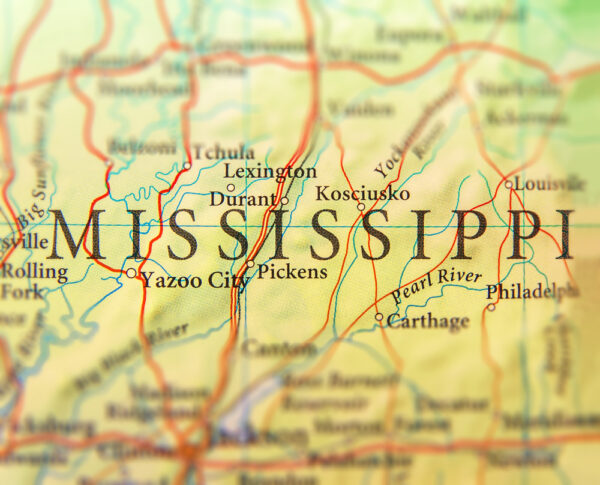
Voting Rights
White v. Mississippi State Board of Elections
District lines used to elect Mississippi’s Supreme Court have gone unchanged for more than 35 years. We’re suing because this dilutes the voting strength of Black residents in state Supreme Court elections, in violation of the Voting Rights Act and the U.S. Constitution.
Louisiana
Aug 2025

Voting Rights
Nairne v. Landry
Nairne v. Landry poses a challenge under Section 2 of the Voting Rights Act of 1965 to Louisiana’s House and Senate legislative maps on behalf of plaintiff Black voters and Black voters across the state.
Ohio
Jul 2025

Reproductive Freedom
Planned Parenthood Southwest Ohio Region et al., v. Ohio Department of Health, et al.
The ļž–” ”∆Ķ, the ļž–” ”∆Ķ of Ohio, Planned Parenthood Federation of America, the law firm WilmerHale, and Fanon Rucker of the Cochran Law Firm, on behalf of Planned Parenthood Southwest Ohio Region, Planned Parenthood of Greater Ohio, Preterm-Cleveland, Women‚Äôs Med Group Professional Corporation, Dr. Sharon Liner, and Julia Quinn, MSN, BSN, amended a complaint in an existing lawsuit against a ban on telehealth medication abortion services to bring new claims under the Ohio Reproductive Freedom Amendment, including additional challenges to other laws in Ohio that restrict access to medication abortion in the state.
U.S. Supreme Court
Apr 2024

Reproductive Freedom
Idaho and Moyle, et al. v. United States
Idaho and Moyle, et al. v. United States was appealed to the U.S. Supreme Court by Idaho politicians seeking to disregard a federal statute ‚ÄĒ the Emergency Medical Treatment and Labor Act (EMTALA) ‚ÄĒ and put doctors in jail for providing pregnant patients necessary emergency medical care. The Supreme Court heard oral arguments on this case on April 24, 2024. The Court‚Äôs ultimate decision will impact access to this essential care across the country.
All Cases
1,624 Court Cases
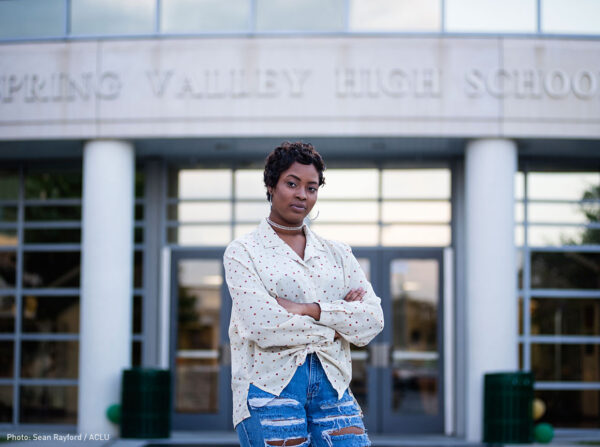
South Carolina
Feb 2023
Juvenile Justice
+2 Issues
CYAP v. Wilson
The ļž–” ”∆Ķ filed a federal lawsuit challenging South Carolina‚Äôs ‚Äúdisturbing schools‚ÄĚ and ‚Äúdisorderly conduct‚ÄĚ laws. The laws allowed students in school to be criminally charged for normal adolescent behaviors including loitering, cursing, or undefined ‚Äúobnoxious‚ÄĚ actions on school grounds and encouraged discriminatory enforcement against Black students and students with disabilities. The Fourth Circuit Court of Appeals affirmed the district court ruling that enforcing these laws against students was unconstitutional, affirming that subjecting students to criminal penalties under such vague rules interferes with their education and their future, and produces stark racial disparities. This decision should be instructive to the many school districts across the country where students continue to be charged with ‚Äėdisorderly conduct‚Äô and similar vague crimes.
Explore case
South Carolina
Feb 2023

Juvenile Justice
+2 Issues
CYAP v. Wilson
The ļž–” ”∆Ķ filed a federal lawsuit challenging South Carolina‚Äôs ‚Äúdisturbing schools‚ÄĚ and ‚Äúdisorderly conduct‚ÄĚ laws. The laws allowed students in school to be criminally charged for normal adolescent behaviors including loitering, cursing, or undefined ‚Äúobnoxious‚ÄĚ actions on school grounds and encouraged discriminatory enforcement against Black students and students with disabilities. The Fourth Circuit Court of Appeals affirmed the district court ruling that enforcing these laws against students was unconstitutional, affirming that subjecting students to criminal penalties under such vague rules interferes with their education and their future, and produces stark racial disparities. This decision should be instructive to the many school districts across the country where students continue to be charged with ‚Äėdisorderly conduct‚Äô and similar vague crimes.

Virginia
Feb 2023
LGBTQ Rights
+2 Issues
Vlaming v. West Point School District
In September of 2019, Peter Vlaming, a French teacher at West Point High School, refused to address a transgender boy in his class with he/him pronouns. Instead, the teacher avoided using pronouns when addressing the student, while continuing to use gendered pronouns when addressing everyone else. After several warnings, the school district told the teacher he needed to address the student with male pronouns (the same way he addressed other boys) or he would be fired. The teacher refused; the school district fired him, and Vlaming, represented by the Alliance Defending Freedom, filed a suit in state court arguing that the school district violated his free speech and free exercise rights under the Virginia Constitution and Virginia’s RFRA.
Explore case
Virginia
Feb 2023

LGBTQ Rights
+2 Issues
Vlaming v. West Point School District
In September of 2019, Peter Vlaming, a French teacher at West Point High School, refused to address a transgender boy in his class with he/him pronouns. Instead, the teacher avoided using pronouns when addressing the student, while continuing to use gendered pronouns when addressing everyone else. After several warnings, the school district told the teacher he needed to address the student with male pronouns (the same way he addressed other boys) or he would be fired. The teacher refused; the school district fired him, and Vlaming, represented by the Alliance Defending Freedom, filed a suit in state court arguing that the school district violated his free speech and free exercise rights under the Virginia Constitution and Virginia’s RFRA.
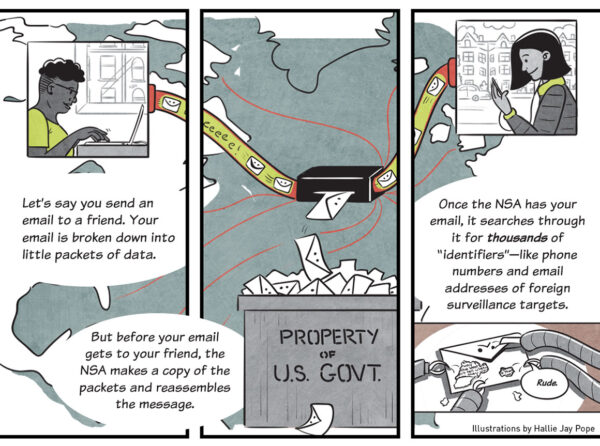
U.S. Supreme Court
Feb 2023
National Security
Wikimedia v. NSA - Challenge to Upstream Surveillance
The ļž–” ”∆Ķ is challenging the constitutionality of the NSA‚Äôs mass interception and searching of Americans‚Äô international Internet communications. At issue is the NSA‚Äôs ‚ÄúUpstream‚ÄĚ surveillance, through which the U.S. government systematically monitors private emails, messages, and other data flowing into and out of the country on the Internet‚Äôs central arteries. The ļž–” ”∆Ķ‚Äôs lawsuit was brought on behalf of the Wikimedia Foundation and eight legal, human rights, and media organizations, which together engage in trillions of sensitive communications and have been harmed by Upstream surveillance.
Explore case
U.S. Supreme Court
Feb 2023

National Security
Wikimedia v. NSA - Challenge to Upstream Surveillance
The ļž–” ”∆Ķ is challenging the constitutionality of the NSA‚Äôs mass interception and searching of Americans‚Äô international Internet communications. At issue is the NSA‚Äôs ‚ÄúUpstream‚ÄĚ surveillance, through which the U.S. government systematically monitors private emails, messages, and other data flowing into and out of the country on the Internet‚Äôs central arteries. The ļž–” ”∆Ķ‚Äôs lawsuit was brought on behalf of the Wikimedia Foundation and eight legal, human rights, and media organizations, which together engage in trillions of sensitive communications and have been harmed by Upstream surveillance.
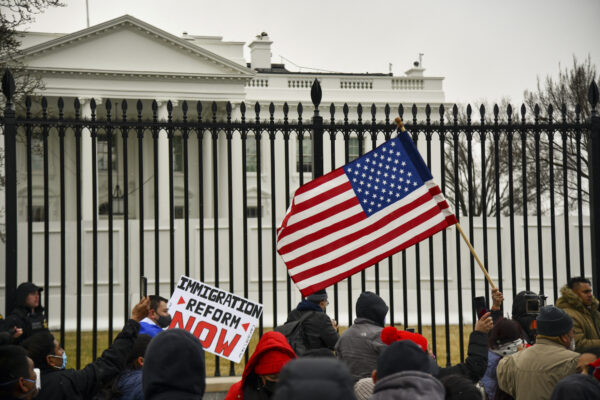
U.S. Supreme Court
Feb 2023
Free Speech
Civil Liberties
United States v. Helaman Hansen
This case is about whether the First Amendment permits criminal punishment of speech that merely encourages a noncitizen to remain in the United States, without any requirement of intent to further illegal conduct, and when remaining in the United States unlawfully is itself not a crime.
Explore case
U.S. Supreme Court
Feb 2023

Free Speech
Civil Liberties
United States v. Helaman Hansen
This case is about whether the First Amendment permits criminal punishment of speech that merely encourages a noncitizen to remain in the United States, without any requirement of intent to further illegal conduct, and when remaining in the United States unlawfully is itself not a crime.

California
Feb 2023
LGBTQ Rights
Knight v. St. Joseph Hospital
The ļž–” ”∆Ķ Foundation of Northern California, the ļž–” ”∆Ķ Foundation of Southern California and Rukin Hyland & Riggin LLP filed a lawsuit on March 21, 2019 on behalf of Oliver Knight, a 29-year-old transgender man who was denied surgery minutes before it was scheduled to take place based on the hospital‚Äôs religious beliefs, which do not recognize gender-affirming care.
Explore case
California
Feb 2023

LGBTQ Rights
Knight v. St. Joseph Hospital
The ļž–” ”∆Ķ Foundation of Northern California, the ļž–” ”∆Ķ Foundation of Southern California and Rukin Hyland & Riggin LLP filed a lawsuit on March 21, 2019 on behalf of Oliver Knight, a 29-year-old transgender man who was denied surgery minutes before it was scheduled to take place based on the hospital‚Äôs religious beliefs, which do not recognize gender-affirming care.
